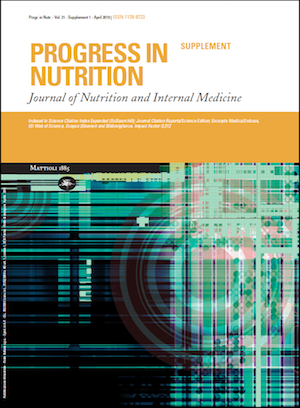Changes in Akkermansia muciniphila and its relationship with dietary habits in type 2 diabetic obese patients
Main Article Content
Keywords
Akkermansia muciniphila, Type 2 diabetes, Dietary habits
Abstract
Background: Recent studies have suggested that gut bacteria play a crucial role in obesity and diabetes. Akkermansia muciniphila (A.muciniphila), which is a mucin-degrading bacterium and resident of the mucus layer, could affect gut barrier function through its composition and interaction with the host. This study was aimed to investigate Akkermansia muciniphila changes and its relationship with dietary habits in type 2 diabetic obese patients. Methods: In this case-control study, diabetic (n=36) and non-diabetic obese subjects (n=32) were recruited. Fasting blood sample and fecal samples were collected from all participants. Food frequency questionnaire (FFQ) was used to evaluate dietary habits of participants. Additionally, DNA extraction and qPCR were done for A.muciniphila.Data was analyzed by SPSS (Ver.13). Results: Mean A.muciniphila colony forming unit (CFU) was significantly different between two groups (p=0.022). Results showed an inverse correlation between fasting blood sugar (FBS) and A.muciniphila CFU in healthy group (Beta=-0.395, p=0.017). There was a positive correlation between A.muciniphila and dairy consumption in the diabetic group (Beta=0.355, p=0.034). Conclusion: A.muciniphila counting was different among diabetic and non-diabetic subjects and had a strong relationship with dietary habits. Nevertheless, further studies are required.






